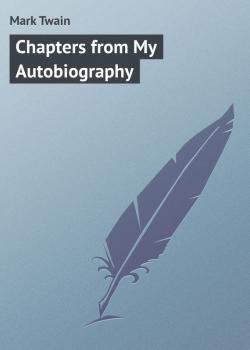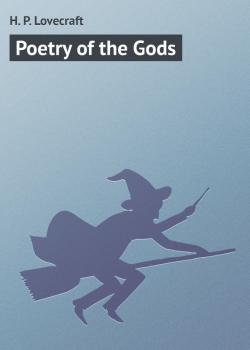Иностранный паблик на Литресе
Все книги издательства Иностранный паблик на ЛитресеEditorial Wild Oats
Typical Mark Twain slightly caustic, complex humor. Six of Mark Twain's recollections his early experiences in newspaper work on topics such as his first editorship at age 13, the weaponry needed to edit a newspaper in Tennessee, a character study, and a couple of blunders he made along the way.
The Curious Republic of Gondour and Other Whimsical Sketches
As the title reveals, these stories are a collection of some of Mark Twain's more fanciful and eccentric works. They run the gamut from political commentary to our species' need to "be remembered" somehow. Taken as a whole the stories are "whimsical". Taken individually, they speak the truth in different ways.
Chapters from My Autobiography
Mark Twain began writing his autobiography long before the 1906 publications of "Chapters from my Autobiography". He originally planned to have his memoirs published only after his death but realized, once he’d passed his 70th year, that a lot of the material might be OK to publish before his departure. While much of the material consists of stories about the people, places and incidents of his long life, there’re also several sections from his daughter.
Wuthering Heights
Emily Brontë's only novel is famous the world over and is the favorite classic of many readers. It is easy to see why, with hardship, insanity, cruelty, frustrated love, and ghosts.
A Tramp Abroad
The book details a journey by the author, with his friend Harris (a character created for the book, and based on his closest friend, Joseph Twichell), through central and southern Europe. While the stated goal of the journey is to walk most of the way, the men find themselves using other forms of transport as they traverse the continent.
The Tomb
"The Tomb" tells of Jervas Dudley, a self-confessed day-dreamer. While still a child, he discovers the entrance to a mausoleum, belonging to the family Hyde, whose nearby family mansion had burnt down many years previously. The entrance to the mausoleum is padlocked and slightly ajar. Jervas attempts to break the padlock, but is unable. Dispirited, he takes to sleeping beside the tomb. Eventually, inspired by reading Plutarch's Lives, Dudley decides to patiently wait until it is his time to gain entrance to the tomb.
Poetry of the Gods
The story begins with the woman feeling outside of society and then Hermes appears and tells her that she has, though her reading of poetry learned something that only a few others have, that the gods are not dead but only asleep. They meet a series of the different gods and then artists from the past but it is time for a new poet to arrive and become a great messenger for the gods. The woman will not be that poet though but she will know it.
Memory
This story takes place in the ancient valley of Nis, in vegetation-covered stone ruins described by Lovecraft in great detail. These crumbling blocks of monolithic stone now serve only for grey toads and snakes to nest under. Interspersed in the ruins are large trees that are home to little apes. Through the bottom of this valley runs the great, slimy red river called Than.
Imprisoned with the Pharohs
The narrative tells a fictionalized account in the first-person perspective of an allegedly true experience of escape artist Harry Houdini. Set in 1910, in Egypt, Houdini finds himself kidnapped by a tour guide, who resembles an ancient pharaoh, and thrown down a deep hole near the Great Sphinx of Giza. While attempting to find his way out, he stumbles upon a gigantic ceremonial cavern and encounters the real-life deity that inspired the building of the Sphinx.
The Book
"The Book" is an unfinished short story H.P. Lovecraft, believed to have been written in late 1933. It was first published in the journal in 1938, after Lovecraft's death. In the story fragment, the narrator is given an ancient book by a strange bookseller, and when he takes it home and examines it, weird and sinister events ensue.









